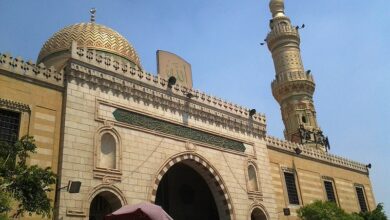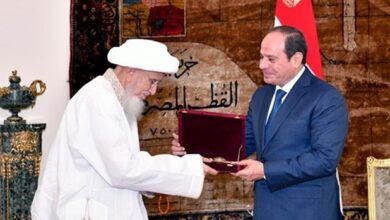
The Economist reported that President Abdel Fattah al-Sisi deserves praise for taking the tough yet necessary decisions to save Egypt's economic crisis.
The newspaper added that Sisi did not have any other options or alternatives but to float the Egyptian pound and cancel subsidies in order to secure the IMF loan of $ US12 billion, and stressed that such steps should be the beginning, and not the end, of reforms.
In addition, it praised Sisi for meeting the IMF requests, noting other leaders have taken similar tough economic measures when they are left empty-handed.
The newspaper also pointed out two recommendations that would possibily ensure the recovery of the Egyptian economy.
First, not to backtrack on the reforms until the economy begins to get back on its feet, given that Egypt is now more attractive to foreign investors and even tourists, since the currency dropped by half.
However, they warned the Egyptian government that it might find itself under the temptation to change its policy toward lifting subsidies due to reducing pressure on the state budget.
Second, seeing that Egypt is ranked number 122 according to the Ease of Doing Business on the World Bank index, the government should not lose hope of its role given that this is a very frustrating rank in comparison to other countries in the world.
The country's reputation had been negatively affected following the confiscation of thousands of tons of sugar from Pepsi and a number of local companies last month, as well as the consolidation of crony capitalism, making it difficult for emerging companies to flourish compared to larger companies.
The Economist also warned of the consequences of suppressing any peaceful demonstrations concerning these harsh economic measures. By suppressing demonstrations, it would frighten investors and tourists from coming back to an unrestful atmosphere.
Additionally, Deutsche Welle German website reported Sunday that Egypt also secured, aside from the IMF loan, about US$ 6 billion, in a separate financing deal with China, the UAE, Saudi Arabia and countries of the Group of Seven in which they issued bank loans and a bond. They added that this occurred at a time when inflation reached 14 percent, the budget deficit reached 12 percent, and the unemployment rate was at 13 percent where unemployment among the youth stood at a high at 30 percent.
The Associated Press, meanwhile, said that painful austerity measures, taken by Sisi, have broken the "unspoken social contract with Egyptians" from the 1950s in which people conceded "democracy and freedoms" in return for maintaining a relatively, low living standard by providing subsidized goods and services, such as bread, sugar, rice, fuel, water and electricity.
The agency added that Sisi had to take inconceivable reforms to save the ailing Egyptian economy.
The Egyptian government received the first batch of the IMF loans which sent a message that it still maintains a strong security grip of the state on the same day calls for 11/11 protests against recent economic measures failed.
The AP quoted Michael Hanna, an expert in the Egyptian affairs with Century foundation in New York, as saying, "The measures were way overdue but could have been taken earlier under better terms and more secure circumstances. Now the government must show it can shepherd the changes through."
He added, "It's an open question whether this will transition to something more sustainable and the government is disciplined enough to see through a reform process."




